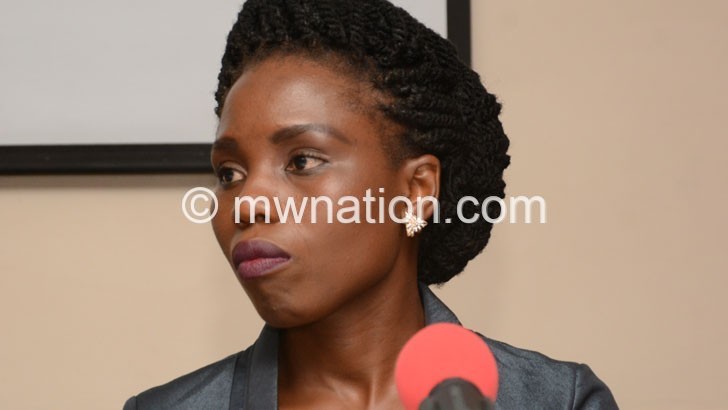Debate or exclusion?
The electorate is bracing for debates in which the Media Institute for Southern Africa (Misa) Malawi Chapter will put five of nine presidential candidates in the spotlight.Why five? Our Staff Reporter AYAMI MKWANDA spoke to Misa Malawi chairperson Theresa Ndanga.

Why did you opt for five
We wanted to ensure that the participants have a national appeal. We did look at the 2014 debate to see what worked and what did not work. One of the things that did not work very well was to do with the number and secondly, the lack of deeper analysis of issues. So, we thought that we needed to focus only on those who have a national appeal just to ensure that we are focusing on candidates that people would want to hear more from and enable the electorate to deeply analyse what they are saying.
That can only happen where we have fewer candidates participating in the debate. In 2014, we had 11 of the 12 presidential candidates. For a three hour event where each candidate is given two minutes to answer a question, one will have to wait for 20 minutes to speak again. A debate cannot be a debate.
What would have happened had all candidates met the criteria?
We would have devised a way. We had also thought about it as a committee. So, we would split the group into smaller numbers to allow the candidates respond in a manner that gives a broader analysis to the questions posed. Now, Malawi is a part of a bigger international taskforce with members from 150 countries which looks at how debates are conducted worldwide and we learn from there. So ,we picked a number of lessons from there. The US holds presidential debates every time they have elections and, in most cases, we only see the Republican and the Democrats participating in those debates. There are other parties, such as the Green Party and
independent candidates, yet we don’t see them during debates. Secondly, look at Nigeria. Nigeria just had 72 presidential candidates in last month’s elections, yet only five participated in the debates. So, you can see the focus is only on candidates that have a national appeal who people would want to hear more from. Malawi is not doing something strange or new. It is already happening in other countries.
How are you addressing the concerns of presidential candidates who are left out?
AWe have noted all the concerns and ideas that are coming through. We really appreciate that. We know that to make the debates work, to ensure that we are fair and not discriminatory, we need to listen to other voices. So we are not shutting down any views. The committee will decide and announce a way forward.
Any guarantees that the candidates will be secure from political violence?
Security will be guaranteed. We will have a hall where the candidates will be secure from the audience. We are limiting the number of their supporters to maintain order and ensure that no one has an advantage over the other. So, we have a uniform number of supporters for a particular candidate.We will have enough security to man all the doors and ensure there is order in the hall. We will also provide security if the candidates do not have, but I am sure the candidates will also hire their own security. I am sure this will be a safe place and everyone will be protected.
What is the main focus of the debates?
We have divided into areas that have interest for the country. We had experts who sat down in education, sanitation and water, agriculture, economics and finance, health. We drew experts from these fields who sat in committees deciding the questions. And our hope is that the candidates will critically analyse these areas. These are the topics. The candidates will know these in advance for the purposes of planning. What they will not know, or you and I will not know will be the questions because that task is left to individuals moderating the debate. We expect them to tell us what their policies will be. Again issues to do with gender and human rights will be discussed.
What are your expectations after the debate?
We are organising these debates to give Malawians an opportunity to be able to look at the policies of different presidential candidates. In doing so, they should be able to see how those policies differ and make decisions out of that. We want them to see if one of the candidates is responding to their needs better than the other because this is the whole essence of the elections. We want to depart from the traditional way of people looking at who to vote for—where people vote for regional, tribal or religious lines. Now let us vote for someone in terms of what they are offering.





